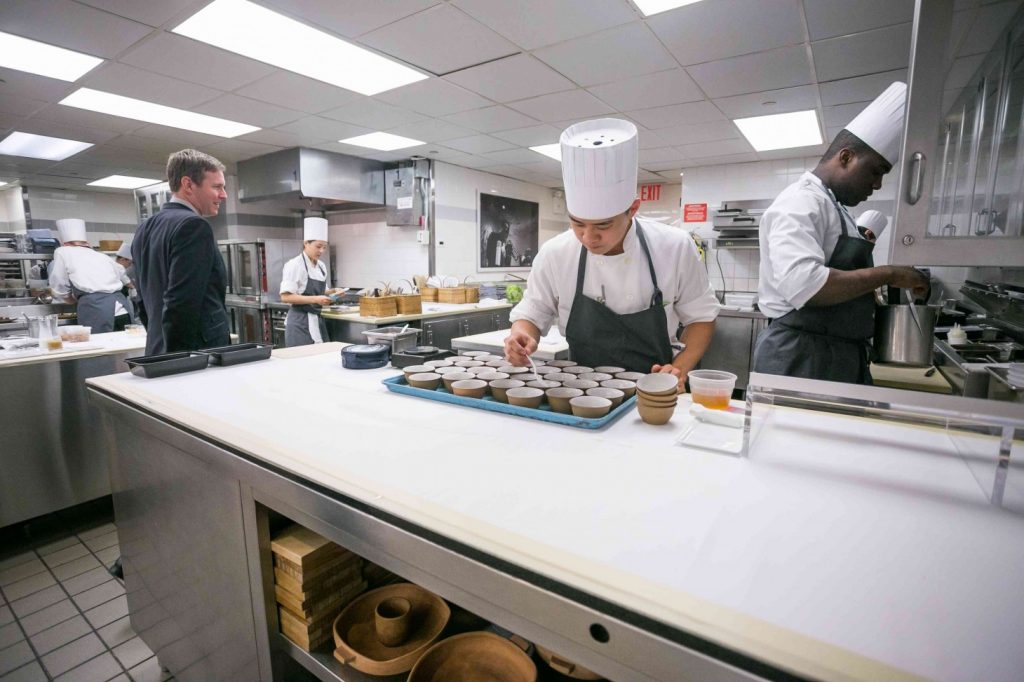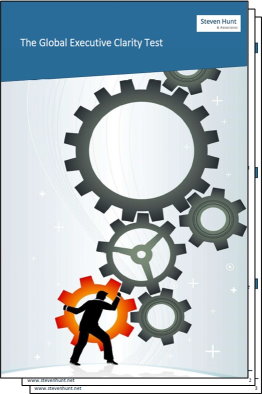There’s a reason Gordon Ramsey isn’t unemployed
In the best restaurants, the chefs to do the cooking, not machines.
Because great cooking has three parts:
- The Tools – the pots, pans, and ovens in the kitchen.
- The Instructions – the recipe.
- The Process – the tacit knowledge or technical experience: because 1001 things can go wrong when cooking which you can’t write down in a cookbook.
The best chefs master all three parts: tools, instructions, process. But a machine only masters the first two: tools and instructions. The day when a machine becomes the process expert will be the day Jamie Oliver and Gordon Ramsey look for new jobs.
In short, we trust chefs to get on with the job of cooking our food. We don’t walk into the kitchen to micro-manage the process. The tasty dishes are produced out of our sight – it’s all done virtually.
Global managers use more trust, than control
Charles Handy said, 25 years ago, that to enjoy the benefits of working in a virtual organisation, we have to run organisations based on more trust, than control. Virtual working needs trust to make it work.
Fast forward to today and as so often, Charles Handy’s predictions are becoming reality.
Last week – and I was doing initial one-to-one interviews with the CEO and CFO of a new client. Their company operates across Europe and the USA. It’s doing very well: sales and growth are increasing, despite the current pandemic. But they have a few “growing pains”.
What struck me in both interviews was how comfortable the CEO and CFO were as they talked about the emotional and intellectual challenges in the company. Both were totally open, honest, and sincere. I instantly felt they trusted me. Maybe that’s because I was referred to them by a good contact. But that openness is still a rare, powerful combination in any company, particularly at that level. It’s even rarer to see executives establish trust so quickly and deeply via Skype, i.e. virtual communication.
How to establish trust instantly via Skype
This experience got me thinking: what makes people feel trusted when working virtually? What did the CEO and CFO do to create an atmosphere of trust on Skype?
Using Skype, like any technology has three parts: tools, instructions, and processes.
They are totally comfortable with the tools and instructions.
Being comfortable with meeting on different video-conferencing platforms is a must, not an optional extra. The CEO and CFO are highly competent with the technology and tools. It makes others feel confident, safe and believe them more. (Note: these are all core components of trust.)
They trust in efficient processes
In virtual working, increasing control is the enemy of efficiency. From a diner’s point of view, there are two control points: we order the food, then we taste it. If there’s a problem, it’s either with the order or the taste. Everything else is secondary. Those two control points clearly come at the start and the end of the process. We trust the master chef to take care of everything else.
Back to the CEO and CFO… What was unique was how they clearly set goals and control points, then expected me – as the process expert – to figure out the best way to achieve the goals. You could see that this was their modus operandi.
The point is: the CEO and CFO fully trust people. When leading executives trust the people they lead, virtual work becomes ten times easier.
Local managers and employees are more competent that we think. Global executives must set the goals, make the control points clear and then get out of people’s way. Because when anyone leads like this, we create the space for master chefs and remote employees produce amazing results.
















